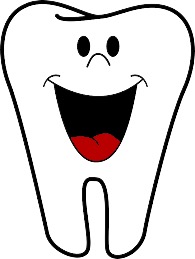
Bruxism is defined as the involuntary or habitual grinding of teeth.
Teeth grinding can take place while awake or asleep and is very common. Most people are unaware that they grind or perhaps clench.
The causes of bruxism are not completely understood, but there are various possibilities, including:
- Stress
- Habit
- Anxiety
- Misaligned teeth
- Hyperactive, competitive, or aggressive personality
- Anger
- Tension
- Frustration
- Excess caffeine, alcohol
- Sleep Apnea
Because many people are unaware of their grinding, any signs and symptoms may not be recognized as grinding and may consequently be overlooked. It is important to know the signs and symptoms in order to avoid possible issues.
Signs and symptoms of bruxism may include:
- flattened, chipped or damaged teeth
- worn or shortened teeth
- loose teeth
- noises loud enough for others to hear
- tooth or biting sensitivity
- loss of the outer white layer of
tooth (enamel) exposing the second yellow layer oftooth (dentin) - TMJ (Temporomandibular Joint) pain or jaw pain
- dull headaches especially upon awakening and at temple region
- facial pain or soreness
- tight facial muscles
- ear ache like symptoms
- chewing lines on inside cheeks
- scallops on sides of
tongue
If you feel you may be grinding or clenching, be aware and STOP. Place the tip of your tongue between your teeth and hold it there to prevent your teeth from coming together.
If your symptoms include pain, try these suggestions:
- avoid hard or tough foods
- avoid chewing gum
- avoid chewing on pens and/ or pencils
- avoid/limit alcohol
- avoid/limit caffeine
- apply ice or moist heat to sore facial areas
- physiotherapy

 If you suspect you are grinding see your dentist to determine if there is any dental evidence. Mild bruxism often requires no treatment. However, if treatment is needed, there is help. A lab fabricated custom mouthguard can protect teeth from further damage, rest the jaw, decrease pain, and make for a more comfortable individual.
If you suspect you are grinding see your dentist to determine if there is any dental evidence. Mild bruxism often requires no treatment. However, if treatment is needed, there is help. A lab fabricated custom mouthguard can protect teeth from further damage, rest the jaw, decrease pain, and make for a more comfortable individual.